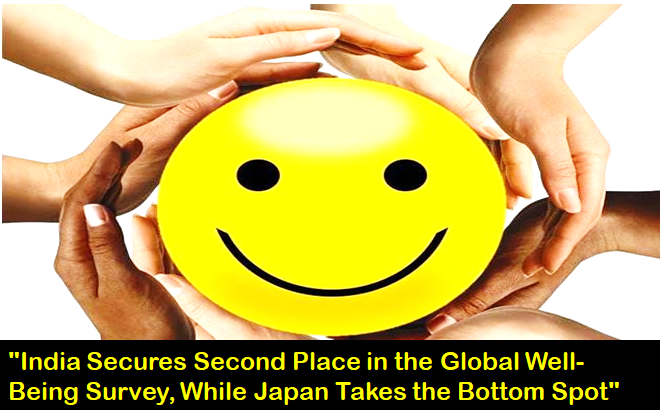Leaders in contemporary workplaces are increasingly concerned about employee well-being, a critical aspect that varies widely across countries. A recent global survey by the McKinsey Health Institute evaluated employee well-being comprehensively, considering physical, mental, social, and spiritual dimensions. The results showed a stark contrast, with Japan ranking lowest, Turkey at the top, and India closely following.
Japan’s meagre score of 25% in the survey highlighted a concerning scenario, while Turkey claimed the lead with an impressive 78% score, closely trailed by India at 76% and China at 75%, surpassing the global average of 57%. The survey, with input from 30,000 participants across almost 30 countries, provided a thorough assessment of global employee well-being.
Indian participants reported robust scores in physical (81%), mental health (79%), and social and spiritual well-being (78%). However, the report underscored that Indian respondents exhibited the highest prevalence of burnout symptoms, reaching 59%, with Saudi Arabia at 36% and both Egypt and Chile at 33%. In contrast, Cameroonian respondents reported the lowest burnout rate at just 9%.
In Japan, known for stable, long-term employment, challenges arise when workers seek job transitions. Short-term contracts dominate Japan’s workforce, leading to dissatisfaction and elevated stress levels. A Bloomberg report quoted Kopp, a board member at MS&AD Insurance Group Holdings Inc., highlighting a tendency among Japanese workers to undervalue their experiences.
The survey revealed a concerning reality where over 50% of the workforce exhibits clear signs of burnout, significantly raising the likelihood of job turnover. Among the 30 countries studied, 22% of workers reported burnout symptoms. Demographic analysis found higher burnout rates among individuals aged 18 to 24, employees of smaller enterprises, and non-managerial professionals.
Irish Samachar English News


Comments are closed.